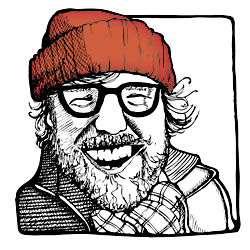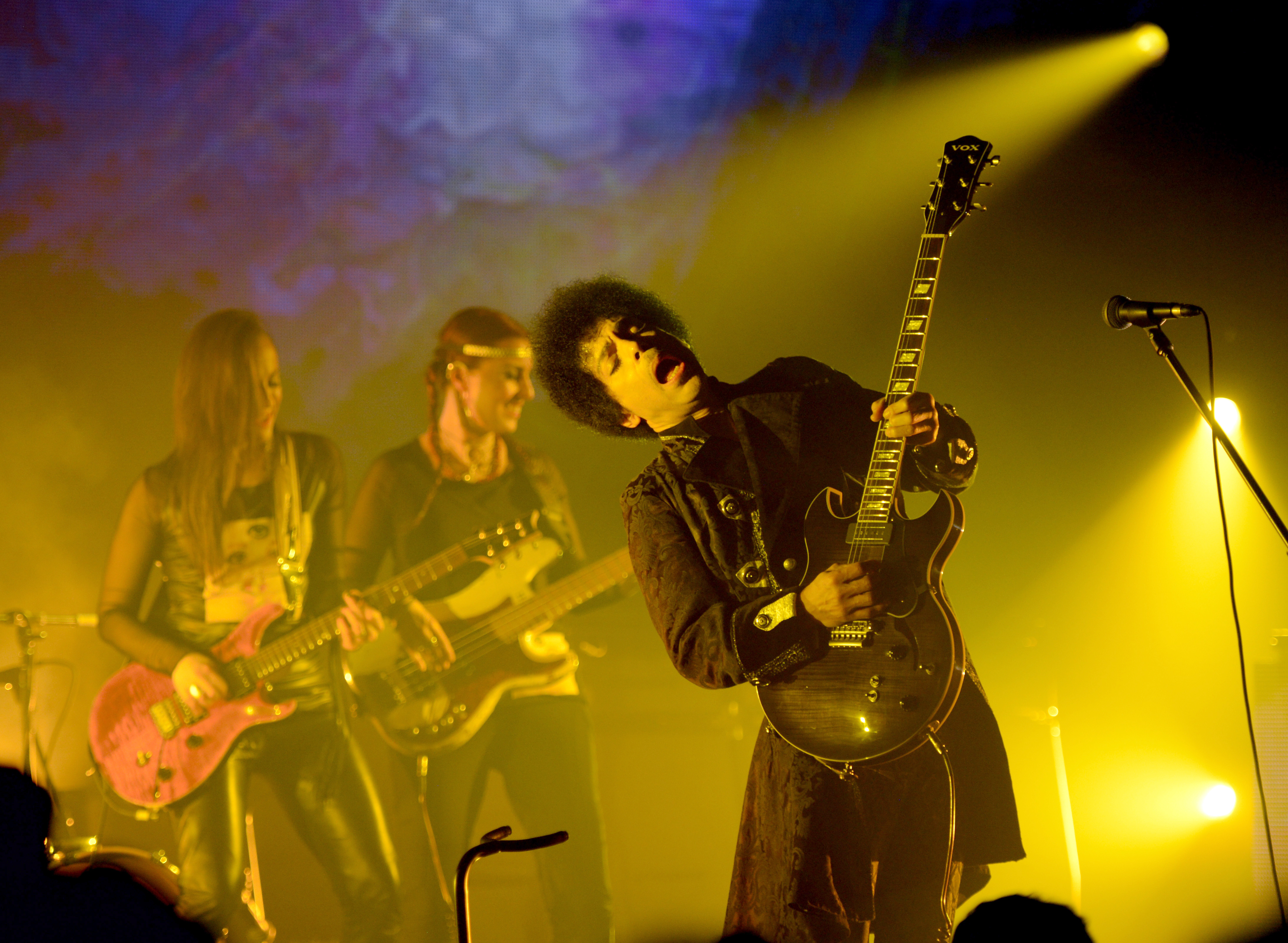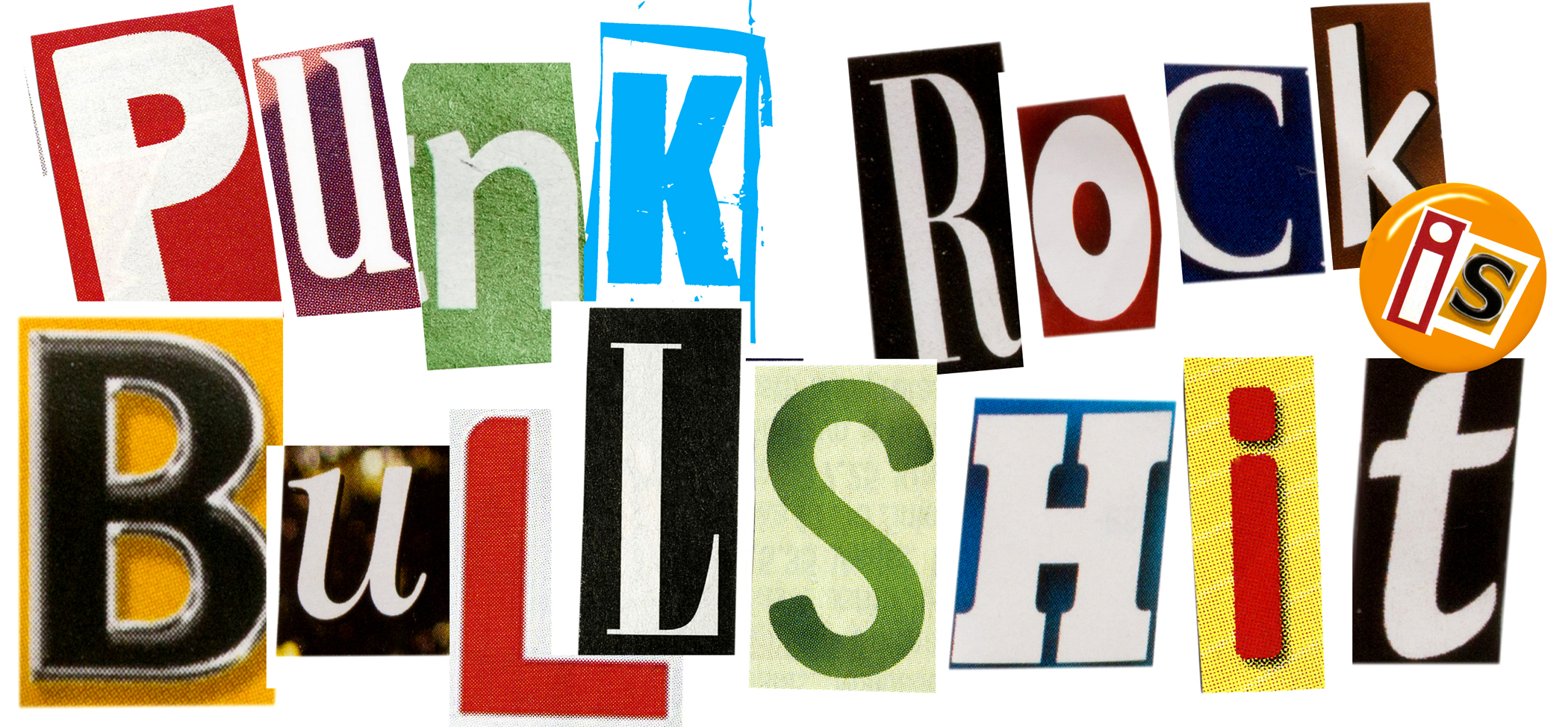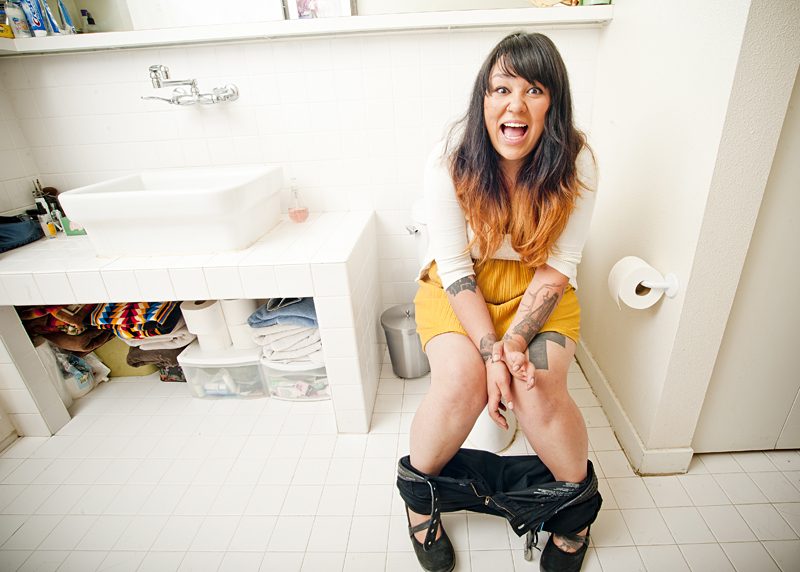I’ve talked a little bit about rock-and-roll lifers, but there are many different types, and I should probably define my terms. The rock lifers of song and story, the ones we admire the most, are perpetual teenagers not good for anything else. They don’t have a “backup plan,” they don’t ever quit playing music to “get serious,” and they don’t change their style to suit the fashion. They smell like cigarettes. Most of these rock lifers have day jobs, because playing music pays for shit, but their job is just a transparent formality. Music is their entire identity. Bear this in mind if you’re considering getting married to this type of rock lifer.
Another kind is the lucky lifer. They had bands in high school and college like a thousand other punters, but somewhere along the way they hit the numbers and became rock stars. The overwhelming majority of young bands imagine that this fate awaits them, a dream which in most cases will slowly shrivel and die covered in disappointment and agony. (But keep practicing, kids!) Brian May of Queen was working on his Ph.D. in physics when his band took off; Tom Scholz of Boston has a master’s degree in mechanical engineering from MIT; Dexter Holland of the Offspring has a master’s in molecular biology; and so forth. These guys clearly didn’t intend to be rock stars; they were anticipating a lifetime of sodomizing bacteria before their rock dreams came true. Wankers.
As I’ve said before, I fall into the category of accidental, or loafing, lifers. I wasn’t born into it, and I never hit the numbers. Rather, my life has been a steady process of elimination, as one career path after another fell by the wayside. Every normal pursuit represented too much acquiescence, too much surrender of independence, and I sat strumming my guitar until there was nothing left for me to do. I lived on birdseed and brotherly love. I schlepped, skimped, scrounged, and scavenged. I proudly moved back in with Mom, and I shopped exclusively at thrift stores until, well, until now. I concentrated my attention on music not for the money, nor love of fame or sex, nor passion for denim or MDMA, but almost completely from a desire never to have to watch soap operas during lunch in the employee cafeteria.
With that in mind, I’ll finish my little saga. Fall of 1997, I was working with a sarcastic and unearned air of entitlement three days a week at Broadway News and living in an unfinished and monstrous warehouse apartment between Pike and Pine with my hipster friends, and besides that had almost nothing to show for myself. The Bun Family Players played a few last shows, and at one of them I was captivated by the girl singer of one of the opening bands. She was a charismatic front person and a good guitar player, and we exchanged numbers after the show, as you do. A month or so later, out of the blue, she calls and suggests we get together and “play some songs.” I was resigned to being a washed-up ex-singer from the Bun Family Players, but this invitation seemed fortuitous. I invited her over.
I’ll confess here that I found her attractive. She looked like the assistant librarian at the David Lee Roth College of Intoxicated Underwear Models, and she was a guitar player to boot. When she arrived at my apartment, we sat on the couch with our guitars and chatted flirtatiously, counting the buttons on each other’s shirts. It was looking like we were going to dispense with the formalities and throw our guitars on the floor when she suggested, giggling, that we “at least play a song.” So we started to sing together, and in an instant everything was different. She took an effortless harmony, and we sang our fool hearts out. Far from propelling us into bed together, it chased the sex right out of the room. We spent all afternoon playing and singing, just having a blast, and by the time she left it was clear we could never have an affair. It would ruin everything.
I didn’t expect this. Suddenly I had a reason to want to make music: a foxy singing partner who could play guitar. Unfortunately she was committed to her other band, but she agreed to help me record some of my songs, to make a “demo tape,” in order to find some bandmates or maybe get a “label deal.” It was a bit of a wet blanket, but we convened with a drummer friend of mine and his bass-playing buddy to run through some songs together. The bassist was in a fairly successful band called Severna Park, so this rehearsal was just for fun, to flesh out the songs.
But as we started to play, a strange electricity came over us. By the end of the first song it was clear we were a band, and we were the best band any of us had known. Whatever reservations we had were swept aside, and we set about scheduling rehearsals and booking shows almost immediately. Our first show was a sellout, opening for the fabulous Sycophant, and within a week we were already a “buzz band.” In our first month the local newspapers wrote more glowing articles about us than had been written about any of our previous bands combined. Then The Stranger‘s new music editor, the sclerotic and scabby Everett True, decided that he hated us, doubling our fame instantly. Every week he wrote another hackneyed, walleyed diatribe against us, and every show our audience increased.
We were the “next big thing,” anointed by the invisible tastemakers as the band to beat. Who doesn’t want to be the next big thing? It was all so easy. After years of laboring in obscurity, we were going to be partying with INXS, free guitars were going to fall from the sky, and beautiful raven-haired stylists were going to be spit-combing my hair forever! We were the Next. Big. Thing. It’s funny to think about now, because of course there’s always a next big thing. There’s one a month. We knew all this too, but when it happens to you, when it’s the culmination of a decade of dreaming, it feels like none of the clichés apply to you. Some “next big thing”s only last a month, and some go on to be U2, but in our case, the Western State Hurricanes lasted exactly a year.
Almost a year to the day after our first show, we broke up ignominiously, destroyed from within by our own hubris, arrogance, duplicity, and deceit. Sub Pop had offered us a contract, which we foolishly declined, and rather than hire a professional producer like John Goodmanson, we tried to make a basement record with an ass-clown named “Scrappy” and squandered a month of our lives. Even worse, our friends and fellow next-big-things Death Cab for Cutie invited us up to Bellingham to record a record in their house, which we condescendingly rejected for being “too amateur.” We made a trip to SXSW, our first tour, where all of our dreams of life on the road came crashing up against the stinky, crowded, unglamorous reality. We were brats. Our collective years in bands hadn’t prepared us for the dawning realization that there is no “making it” that absolves you from being a whiner or a dick. The rhythm section announced they were quitting to take jobs at Microsoft, or Amazon, or some other ice-cream parlor. It was all over.
I was crushed. I had just barely grazed the hem of being a star, of being appreciated and admired, and it was gone in a whiff. I couldn’t possibly do it again, build it from the ground up with another band of ungrateful and contemptible “musicians.” (Bah!) There was no way I could teach my songs to one more drummer, one more bass player. Was it me? Was I really so difficult to work with? Was I as prickly and arrogant as everyone said? How was it possible? I’d watched junkies nod off onstage, singers get in fights with bandmates, assault the audience, drink themselves to death. Maybe I was a little imperious, but what the hell? Even Greg Dulli could keep a band together.
Heartbroken and disillusioned, I knew I had to leave Seattle. My life felt like a sham, and my years playing in bands were a cascade of shame. I wasn’t good at anything else, and apparently I wasn’t good at this either. Within a week of our final show I quit my job, abandoned my apartment, and flew to London on a one-way ticket. I walked out of the airport terminal at Heathrow and kept walking, all the way to the English Channel. There I took a boat to Holland, and eventually I walked from Amsterdam to Istanbul.
When I returned to Seattle six months later, something had changed. The Western State Hurricanes were perhaps the last band in America to release their demo on cassette tape. By the fall of 1999 Death Cab was ascendant, and indie rock had arrived.








